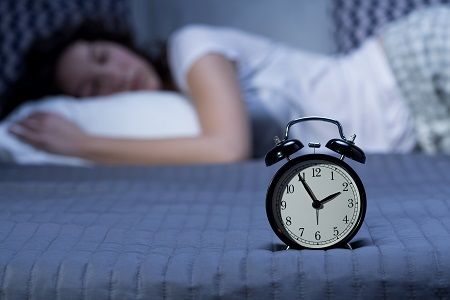Article
Restless Leg Syndrome, Extreme Sleep Patterns Help Predict Recurrent Stroke
Author(s):
New data presented at EAN 2020 Congress dives into the impact of sleep-wake disturbances on recurrent stroke events.

New research from a team of investigators in Sweden indicates sleep-wake disturbances can predict which stroke survivors are at a greater risk of recurrent events.
Patients suffering from a greater level of sleep-wake disturbances, which includes events such as insomnia and restless leg syndrome, had twice the risk of recurrent stroke events within 2 years compared with patients with a lower frequency of events, according to results of the study.
"We know that people who have had a stroke often experience sleep disorders, and that these are associated with worse stroke recovery outcomes," said Martijn Dekkers, and Simone Duss, PhD, both from the University of Bern in Switzerland, in a statement. "What we wanted to learn from this study was whether sleep-wake disturbances in particular are associated with worse outcomes after stroke.”
Presented by duo at the European Academy of Neurology (EAN) Virtual Congress, the study was designed to assess potential associations between sleep-wake disturbances following acute stroke and the recurrence of cerebrovascular events in a cohort of 438 stroke patients.
The age of patients included in the study from 21-86 with a mean age of 65 years. Investigators also noted 64% of this cohort was male. The mean NIHSS was 3.5 (SD 4.5, 0-40) at admission and 1.2 (SD 2.1, range 0-18) at discharge.
Patients included in the current study had data related to stroke characteristics, cardiovascular risk profile, and sleep-disordered breathing recording during the acute phase through interviews, standardized questionnaires, and respirography. Patients also underwent assessments of after months 1, 3, 12, and 24.
Using multiple regression models, investigators sought to determine whether a sleep burden index, calculated based on the combined severity of sleep-wake disturbances up to 3 months post-stroke, as a predictor for subsequent cardio-cerebrovascular events through multiple regression models.
Of the 438 patients included in the study, 85% suffered an ischemic stroke and 15% suffered a transient ischemic attack (TIA). In regard to sleep-wake disturbances, 8% of patients were classified as having restless leg syndrome, 26% suffered from severe sleep-disordered breathing, and 15% reported extreme sleep durations.
Upon analysis, results indicated a higher sleep burden index was associated with a greater risk of subsequent cerebro-cardiovascular events (OR, 2.10; 95% CI, 1.34-3.30; P <.01). Additionally, results suggest stroke survivors who suffered a subsequent event had higher sleep index burden scores than those who did not (Wilcoxon rank-sum test P <.01).
"Using the sleep-related information we collected during the first 3 months after the stroke, we calculated a 'sleep burden index' for each individual, which reflected the presence and severity of sleep-wake disturbances," explained Dekkers, in the aforementioned statement. "We then assessed whether the sleep burden index could be used to predict who would go on to have another cardio-cerebrovascular event during the 2 years we followed them after their stroke."
This study, “Sleep-wake disturbances after acute stroke predict a higher risk of subsequent cardio-cerebrovascular events,” was presented as part of EAN Congress 2020.


